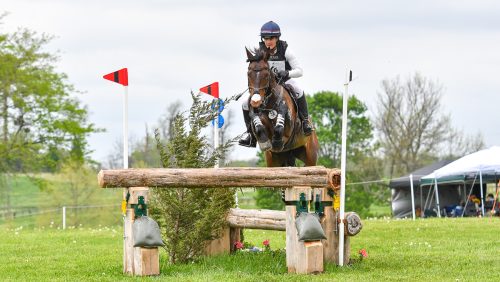Five years ago, a brushfire burned through hunter/jumper trainer Julie Winkel’s Maplewood Stables outside of Reno, Nev., and destroyed her home. Last month a wind storm knocked down her 20-year-old hay barn, and on Jan. 9, forces of nature once again revisited her 165-acre farm in the form of torrential flooding.
Heavy snow in the Sierra Nevada mountains followed by a rapid warming trend and heavy rains caused the creek flowing through her property to burst its banks just above her main barn.
No horses or Maplewood Stables staff members were injured during the flooding, although a female employee was missing for several hours and later found unharmed but disoriented by the local search and rescue and sheriff’s department.
“The water was very high, up to her thighs, and she was trying to [give] hay to some horses in the front paddock. She tried to cross the creek and got stuck and must have gotten very cold and didn’t know where she was,” said Winkel.
The water was rushing so fast and so deep over the cement bridge that connects the main barn to the road that staff members were stranded on either side from the day of the flood, Sunday, until last Wednesday.
“We had two feet of water in the barn, and getting the horses to come out of their stalls and move to the lower barn was a little hairy,” said Winkel.
“Then it flooded our clubhouse, tack store, office and part of the indoor ring, but the worst part is that it blew out three of the roads and took out all of my grand prix field and part of my main show jumping ring. The back road, which we use to have hay and shavings delivered, is also the main road we use to access the horses in the pastures to feed and take care of them,” she added.
Although Winkel said she’s paid $15,000 a year for flood insurance for the past 30 years, as is required by law, none of the damage is covered.
ADVERTISEMENT
“It is going to cost around $300,000 to put my farm back together, and they are not going to pay a dime as they said no structures were damaged,” she said.
“But I have to do it. I have no choice,” she added of rebuilding.
To raise the funds, Winkel has made the tough decision to sell many of her horses.
“I own a lot of young horses, and I’m always slow to sell them, but I’m hoping to generate money so I can put this place back together again,” she said. “I am absolutely willing to barter for them as well. Anything, anybody that has a business or the ability and wants to trade out with construction or landscaping or excavating, there is so much work to do here. And it’s also a way for somebody to buy a nice young horse at a very affordable price.
“I don’t want charity,” she added.
Compounding her helplessness was the fact that Winkel was not home at the time of the flood. She was giving a clinic in Seattle and relied on her son, Kevin, 31, and staff.
“My staff and clients have been amazing,” she said. “The day after the flood, the water lines broke, and they ended up having to bucket water all these horses. They have been out here every day helping clean and [doing] what they can to help us. Of course, the most important thing is to care for the horses—and being able to still get them turned out and ridden and cared for,” she said.















